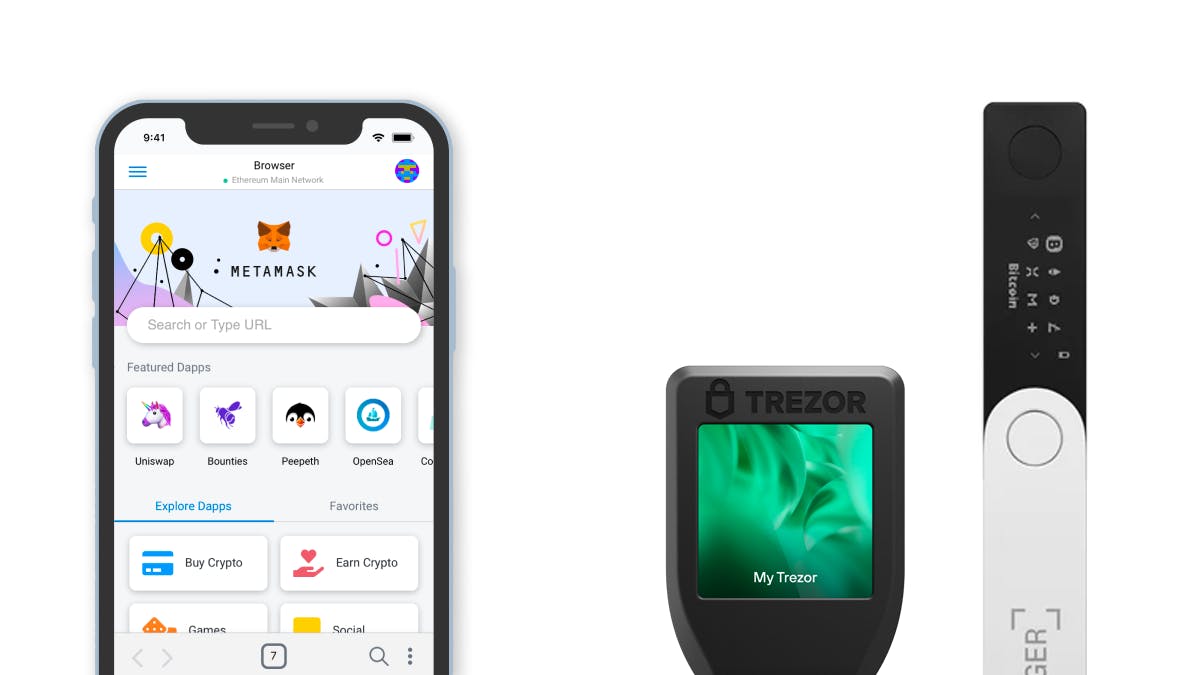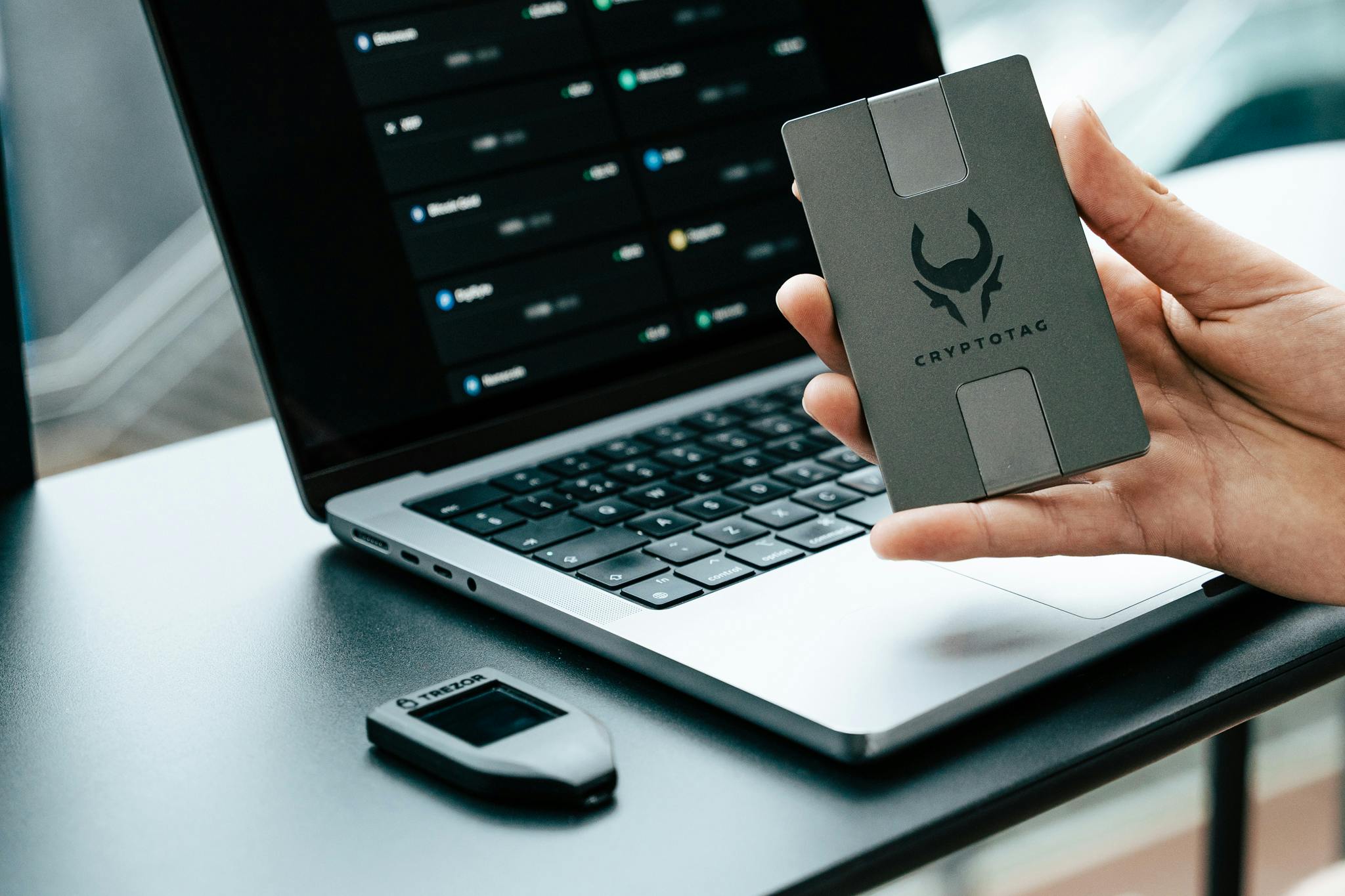August 3, 2023 · 4 min

Cryptocurrencies have become increasingly popular over the past few years. With their decentralized nature, they offer users a level of financial freedom that is unmatched by traditional financial systems. However, with this freedom comes responsibility. One of the most important aspects of owning cryptocurrencies is ensuring that they are stored safely. This is where crypto wallets come in.
Crypto wallets are digital tools that allow users to store, manage, and transfer their cryptocurrencies. There are two main types of crypto wallets: software wallets and hardware wallets. In this blog post, we will explore the differences between these two types of wallets, their pros and cons, and why self-custody is important.

Before we dive into the different types of wallets, it is important to understand the concept of self-custody. Self-custody is the practice of holding your own private keys, which are used to access your cryptocurrencies. When you hold your own private keys, you have full control over your assets. This means that you are responsible for keeping your private keys safe and secure.
Bitcoin was invented to cut out the middleman and to not rely on third parties. Therefore, you, and only you, have access to your wallet. You will not be able to reset your wallet with a 'Forgot Password' function. No email will be sent to you. You will have to back up your wallet with, in most cases, a 12-24 word string of words, coming from the BIP39 protocol word list.
Self-custody is crucial because it eliminates the need for a third-party custodian, such as an exchange, to hold your assets. When you hold your own private keys, you do not have to worry about the security of the custodian. This reduces the risk of hacks, theft, and loss of funds.
Software wallets are digital wallets that are stored on a device, such as a computer or mobile phone. It's an app or a program that you can download. They are easy to use and can be accessed from anywhere with an internet connection. Software wallets are often free to use, making them an attractive option for beginners.
One of the main benefits of software wallets is their accessibility. They are easy to set up and can be used on multiple devices. However, this accessibility comes at a cost. Software wallets are susceptible to hacks and malware attacks. If a hacker gains access to your device, they can steal your private keys and access your funds. And don't forget software wallets are so-called hot wallets. It means they are susceptible to malware.
Widely used software wallets are Trust Wallet, MetaMask, Exodus, Coinbase Wallet, Electrum, and many more. For a full list of BIP39 software wallets, check our article with a list of BIP39-compatible software and hardware wallets.
Software wallets may feel like a great solution for small holdings and day-to-day use, but it is advisable to get a hardware wallet for the long-term storage of cryptocurrencies.

Hardware wallets are physical devices that store your private keys offline. They are designed to provide a high level of security and are often recommended for users with large amounts of cryptocurrency. Hardware wallets are not connected to the internet, which makes them immune to hacks and malware attacks.
It is often thought that the coins of a crypto investor are stored in the hardware wallet, which is a misconception. The coins are and will always be on the chain of the specific network. The hardware wallet can be seen as a user interface that enables you to send and receive assets. The hardware wallet does however store the private key, which is needed to sign transactions.
One of the main benefits of hardware wallets is their security. They offer a level of protection that is unmatched by software wallets. However, this security comes at a cost. Hardware wallets are often more expensive than software wallets and can be more difficult to set up and use for new crypto users.
Still, the benefits of safe storage of the digital assets outweigh the costs. Everybody's game plan is different but it is advised to use a hardware wallet for long-term storage if the portfolio exceeds a couple of hundred euros or dollars.
Wallets such as the Ledger Nano X or the Trezor Model T have been the most popular ones over the past couple of years. Mainly due to their security protocols and integrations.

In conclusion, crypto wallets are an essential tool for anyone who owns cryptocurrencies. Self-custody is important because it eliminates the need for a third-party custodian, reducing the risk of hacks, theft, and loss of funds. Software wallets are easy to use and accessible, but they are susceptible to hacks and malware attacks. Hardware wallets offer a high level of security, but they are often more expensive and maye be more difficult to use to some. Ultimately, the choice between software and hardware wallets comes down to personal preference and the amount of cryptocurrency you own. It is important to do your research and choose a wallet that suits your needs.
The best hodl stories, OPSEC tips, and weekly updates of the market.
 Weekly hodl insights
Weekly hodl insights Bonus content access
Bonus content access Exclusive offers
Exclusive offers